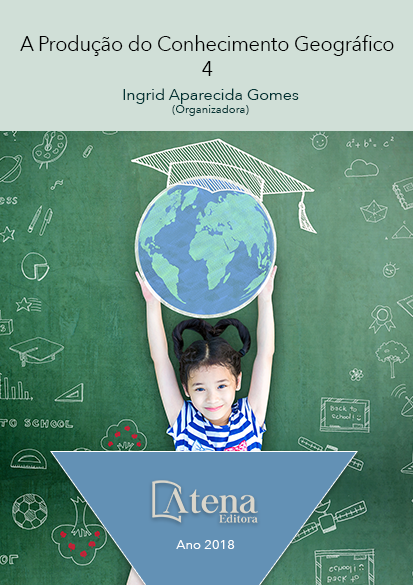
PENSAR AS JUVENTUDES CONTEMPORÂNEAS É PENSAR O ENSINO E O CURRÍCULO DA GEOGRAFIA
O jovem contemporâneo vem
questionando a sociedade nos mais diferentes
setores. Este mesmo jovem encontra-se em
nossos bancos escolares e, por vezes, não
damos a devida atenção às suas individualidades,
coletividades e expressões. Esta pesquisa
trata das culturas juvenis no âmbito escolar
e suas relações com o ensino da Geografia.
Objetivou-se levantar referencial teórico para
colocar em diálogo as duas grandes linhas de
investigação da pesquisa: as culturas juvenis e
o ensino de Geografia. Para atingir o principal
objetivo proposto, foi realizada ampla pesquisa
teórica sobre os dois temas da investigação. Os
resultados da pesquisa indicam que o jovem
contemporâneo é composto de múltiplas e
transitórias identidades e está adaptando-se
a múltiplos pertencimentos. Entende-se que o
perfil de jovem elencado pela pesquisa pode ser
assim entendido em outros espaços, na medida
em que vai se moldando a estas configurações
identitárias. No tocante à Geografia escolar,
nos ficou bem claro que o jovem-aluno vincula
muito fortemente aos temas físicos da ciência,
como exemplos como localização geográfica
e fusos horários. Há o questionamento, então,
sobre a condução das aulas de Geografia, no
ensino básico, a saber, se as mesmas dão conta
do conceito pleno do espaço geográfico, no
sentido de trabalhar as temáticas físicas, mas
também as humanas da ciência. Percebemos
que há relação direta entre as práticas juvenis e
possíveis temas a serem trabalhados na aula de
Geografia. Há muito que se avançar neste tipo
de pesquisa, uma vez que tratamos, além dos
objetos já previstos, de nossa prática docente.
PENSAR AS JUVENTUDES CONTEMPORÂNEAS É PENSAR O ENSINO E O CURRÍCULO DA GEOGRAFIA
-
DOI: Atena
-
Palavras-chave: Jovens. Juventude. Ensino. Geografia.
-
Keywords: Youth . Youth. Education. Geography
-
Abstract:
The younger contemporary
society has been surprising in many different
sectors. This same young man is in our school
benches and sometimes we do not give due
attention to their individualities, communities
and expressions. This research deals with the
youth cultures in the school environment and
their relationship to the teaching of geography.
We aim to raise theoretical framework to put in dialogue the two main lines of research
inquiry: youth cultures and teaching of Geography. To achieve the main objective
proposed, extensive theoretical research on the two subjects of the investigation
was carried out and in the end, related the same. The survey results indicate that
the contemporary young student is composed of multiple and transient identities and
thereby is adapted to multiple affiliations. Even in the case of a specific reality that was
analyzed, we understand that the young profile part listed by the survey can be well
understood in other areas, insofar as these will be shaping the identity configurations.
With regard to school Geography, in became clear that the young student linked very
strongly to physical science topics, as examples such as geographic location and time
zones. There is the question, then, on the conduct of Geography lessons in primary
education, namely, whether they realize the full concept of geographical space in order
to work the physical issues but also human science. We realize that there is direct
relationship between youth practices and possible topics to be worked in geography
class. There is much to advance this type of research, since treat, besides the objects
already provided in our teaching practice.
-
Número de páginas: 15
- Victor Hugo Nedel Oliveira
- Miriam Pires Corrêa de Lacerda
- Andreia Mendes dos Santos


